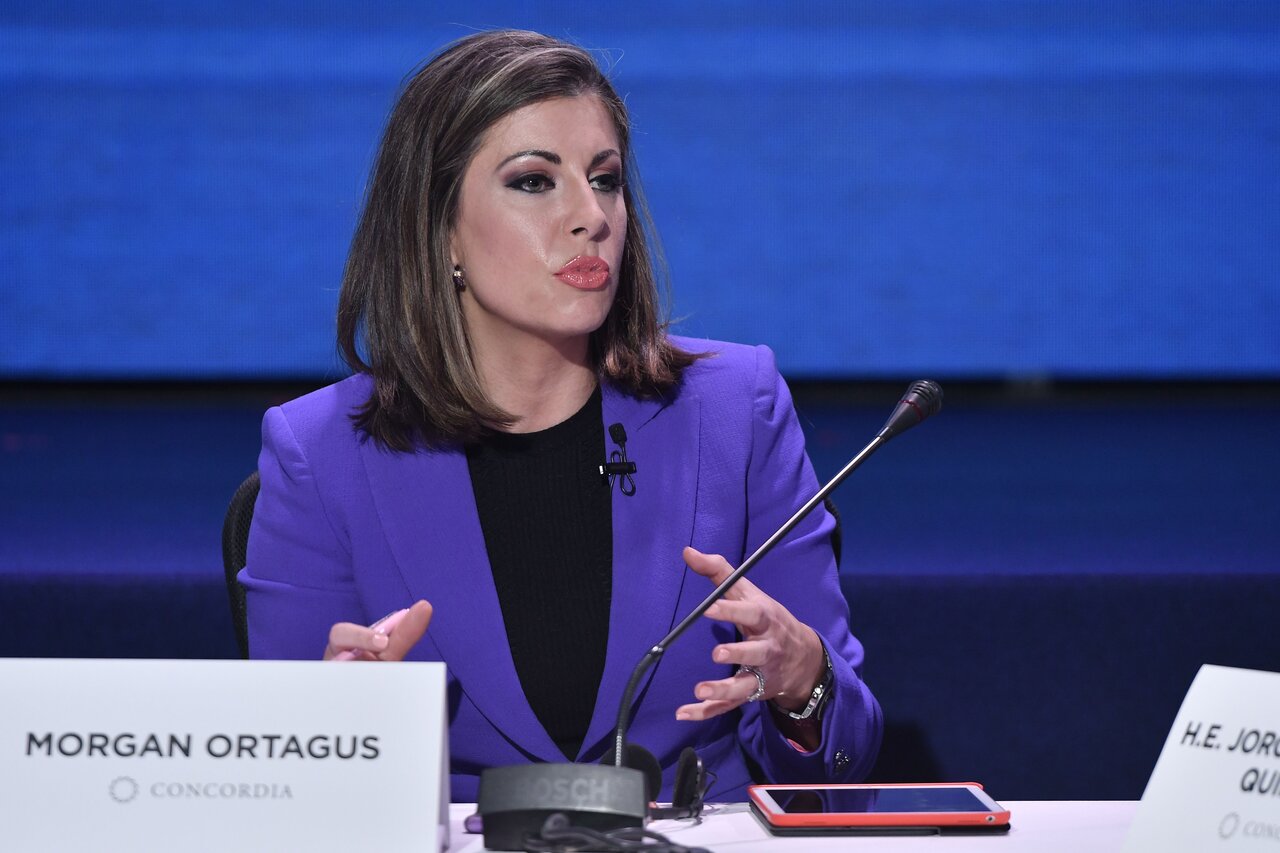Ortagus’s successor, another ugly face of Washington

BEIRUT — Israel’s Channel 14 reported on Sunday that Morgan Ortagus, Deputy Special Presidential Envoy for West Asia, would soon leave her post. The news channel said this move “is not good news as Ortagus was a strong supporter of Israel and worked decisively on the issue of disarming Hezbollah.”
Since U.S. President Donald Trump assumed the presidency, Ortagus has visited Lebanon several times as part of Washington’s pressure on Lebanon amid an atmosphere of threats and hints of aggressive steps against Lebanon.
During the recent Qatar Economic Forum, Ortagus stated, “Lebanon still has a lot to do to disarm Hezbollah,” claiming that Lebanese officials “have accomplished more in the past six months than they probably have in the past fifteen years.”
Reportedly, President Joseph Aoun was invited, a month ago, to hold a live Zoom interview with the Washington Institute for Near East Policy; however, Aoun’s political advisors warned about the negative repercussions of such a move, especially since WINEP is considered the most important pro-Israel think tank, directed by David Schenker, the Taube Senior Fellow at The Washington Institute and director of the Linda and Tony Rubin Program on Arab Politics who served as Assistant Secretary of State for Near Eastern Affairs.
Meanwhile, Wafiq Safa, head of Hezbollah’s Liaison and Coordination Unit, met with Jeanine Hennis-Plasschaert, the UN Special Coordinator for Lebanon, and discussed developments along the Blue Line, the repeated Zionist attacks on Lebanon, the risks of potential escalation, and the need to adhere to and comply with UN Resolution 1701.
Hezbollah is the heavy rock on Washington’s chest
Anyone observing developments in West Asia is well aware that the defeat suffered by the ongoing U.S.-led Israeli aggression has pushed Tel Aviv and Washington to resort to different tactics.
In a session assessing the situation in northern occupied Palestine, Eyal Zamir, the Chief of Staff of the Israeli Offensive Forces, acknowledged that “the battle against Hezbollah is not over yet, and we will continue to pursue and weaken it until it collapses.”
Nevertheless, this is an unattainable goal. Hezbollah’s righteous resistance is a vivid expression of the concerns of its popular base in the South, the Southern Suburbs, the Bekaa, and other Lebanese regions.
This popular base believes in a religious-political doctrine that complicates Washington’s mission. It is, in any case, an integral part of Velayat-e Faqih doctrine initiated by Imam Khomeini, the founder of the Islamic Revolution, more than four decades ago.
Eliminating Hezbollah means disappointing those people who, despite threats of bombing and harsh weather conditions, widely take part in the historical funeral procession of martyrs Sayyed Hassan Nasrallah and Hashem Safieddine, and massively participated in the municipal elections in favor of the Resistance.
Hezbollah is a flexible and decentralized organization intertwined with an exemplary society, which, despite massive and unexpected blows, reappears day after day and cannot be silenced.
Handing Syria to al-Julani to ensure Israel’s security
Eyal Zamir’s impossible goal is merely to reassure the northern colonial settlers. Yet, it is also consistent with the historic strategic shift witnessed in West Asia after the U.S.-sponsored fall of Syria.
Since December 2024, the HTS regime has not hidden its intention to adopt Washington’s strategic imperial priorities, foremost among which is protecting the security of the Israeli regime.
In an interview with Jewish Journal, Syria’s self–appointed president Abu Muhammad al-Julani (currently known as Ahmed al-Sharaa) stated that “the era of mutual bombardment between Syria and Israel must end.”
“Syria and Israel have common enemies, and we can play a major role in regional security,” he said, expressing his desire to return to the disengagement agreement, signed in 1974, “as a basic guarantee of mutual restraint between Syria and Israel and the protection of civilians.”
It’s worth noting that the Jewish Journal is considered one of the most prominent Jewish media outlets in the United States, covering the affairs of the Jewish community in Los Angeles.
Since the fall of Syria, al-Julani has adopted a strict methodology aimed at tightening the noose around the resistance movements and cutting off their arms supply lines.
This coincided with the imposition of a new political authority in Lebanon, which adopted an anti-public discourse while ignoring the imminent dangers threatening the country’s present and future.
Instead of reconstructing what was destroyed due to the ongoing U.S.-led Israeli aggression, this authority is blackmailing the Hezbollah community by blocking the arrival of Iranian and Iraqi humanitarian aid, and linking the reconstruction of their demolished houses to submission to Israeli demands.
While sponsoring a ceremony honoring the families of the martyred educational staff, MP Sayyed Hassan Fadlallah, a member of Hezbollah’s parliamentary bloc, criticized positions that contradict the ministerial statement and even constitute a retreat from the responsibilities pledged by the government.
“The first paragraph of the ministerial statement stipulates the government’s commitment to expediting the reconstruction of what was destroyed by the Israeli enemy, followed by its commitment to the responsibility of security, border protection, and deterring the aggressor, then taking all measures to liberate Lebanese territory,” Fadlallah stated.
Leave a Comment